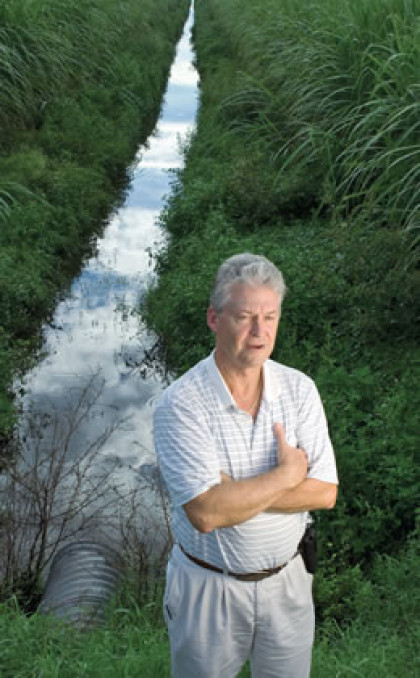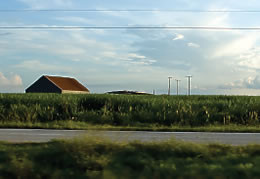SHARE:
Environment
Voices of Lake Okeechobee
Meet a farmer, an activist, an environmentalist, the fish finders, the immigrants and the berm buster, the people who are at odds.
The muck raker
Farming the Land
Third-generation farmer Rick Roth farms 5,000 acres of sugar cane, vegetables, rice and sod in the Everglades Agricultural Area, the half-million acres of rich, organic muck deposited over thousands of years as Lake Okeechobee overflowed its southern bed, layering ton after ton of decayed plant matter. “I’m sitting on some of the best land in the world. It’s nitrogen rich. It’s like farming a sponge. The land holds water so well,” Roth says.
 "I’m sitting on some of the best land in the world. It’s nitrogen rich. It’s like farming a sponge. The land holds water so well." — Rick Roth, farmer [Photo: Jeffrey Camp] |
The area has more than 100 farmers, but much of the land is controlled by two large entities, U.S. Sugar Corp., founded by industrialist and later philanthropist Charles Stewart Mott, whose foundations remain a major shareholder, and companies tied to Palm Beach’s wealthy, politically connected Fanjul family.
In terms of risk and return, Roth likens vegetable growing to the stock market and growing sugar to the bond market. Bonds, then, are down. Sugar, the predominant area crop, fetches growers roughly 18 cents per pound, compared to 20 to 21 cents 22 years ago. This year’s sugar harvest is projected to be down 15% because of the drought. U.S. Sugar closed Bryant Mill in April after 45 years in an efficiency drive as it fully automates its Clewiston mill. Companywide, it has laid off about half of its 500 mill workers.
Roth, in contrast, just opened a vegetable packinghouse and employs 175 seasonally.
 EVERGLADES COMMODITY: “Growing sugar cane by far is the best environmental practice we can have,” says Rick Roth, who farms 5,000 acres of sugar cane, vegetables, rice and sod in the Everglades Agricultural Area. |
Roth has eight feet of muck in places and expects it to last 50 years. Sugar uses up soil slower than other crops. “Growing sugar cane by far is the best environmental practice we can have,” he says. “It may not happen in your lifetime or mine, (but) some day it will be in the history books that sugar cane saved the Everglades.”























